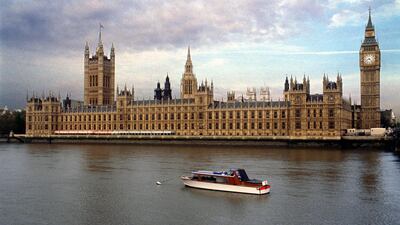If Britain leaves the EU without a deal, it would be “difficult, if not impossible, to envisage a worse outcome”, according to the UK’s House of Lords EU Committee.
The Committee, made up of members of the Upper Chamber of Parliament which holds MPs to account, has released a hard-hitting report on the the potential impact of the UK leaving the EU without a deal, and examining the feasibility of a transition period immediately post-Brexit.
The group say the Government’s statement that ‘no deal is better than a bad deal’ as “not helpful”, and says it is “difficult, if not impossible, to envisage a worse outcome for the UK”.
The report authors state that ‘no deal’ would be economically damaging and would bring an end to cooperation between the UK and EU on issues such as counter terrorism, police and security and nuclear safeguards. It would also necessitate the imposition of controls at the Irish land border - a particularly thorny issue which saw negotiations be derailed earlier this week.
_______________
Read more:
Theresa May in desperate fight to rescue crumbling Brexit deal after Ireland row
Brexit: UK fails to make a deal with EU, although both sides say progress has been made
_______________
The shortage of time before the negotiations must be concluded is highlighted by the Committee as a major risk factor that could harm the UK’s exit outcome. Although the Lords behind the report recognise that meeting the deadline is preferable, they believe it can not be done and that enshrining the Article 50 deadline of 29 March 2019 in domestic law would “not be in the national interest”.
Lord Jay of Ewelme, acting Chairman of the House of Lords EU Committee, said: “The overwhelming weight of evidence suggests that ‘no deal’ would be the worst possible outcome for the UK, in terms of the economy, security, the environment and citizens’ rights.
“The biggest risk factor that might lead to a no deal outcome is time – the clock is ticking. While we support David Davis’ ambition to secure a comprehensive agreement by 29 March 2019, almost nobody outside the Government thinks this will be possible. The negotiations may need to continue beyond that point, and enshrining the deadline in domestic law would not be in the national interest.”.
The Committee argues that negotiations could last several years, and that more time for negotiations may be needed beyond March 2019.
The only secure legal basis for transition, according to the group, may be to use one of the two options available under Article 50, either to extend UK membership of the EU for a time limited period, or to set a date later than March 2019 for withdrawal to take effect, and calls on the Government to review these options.
Lord Jay said: “Both sides agree that we will need a transition period, to give confidence to businesses and potentially to buy time to complete the negotiations. But the Government hasn’t yet explained how transition will work, or what its basis will be in EU law. The evidence is clear that in legal terms the most secure way to buy time is to use one of the options that exist within Article 50 for a time-limited extension of the UK’s EU membership.
“We will live with the consequences of Brexit for decades to come, so we need to get it right. If buying a bit more time means that we get a better outcome, which benefits businesses and citizens on both sides, a short extension of EU membership may be a price worth paying. This is not about unpicking Brexit, but about delivering the best Brexit possible.”
The hard-hitting report is entitled Brexit: deal or no deal, a play on a UK game show in which contestants decide whether to accept a deal of a cash sum or whether to reject it and gamble on accepting an unknown quantity of cash.

